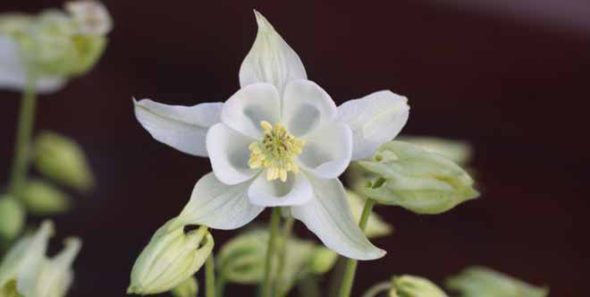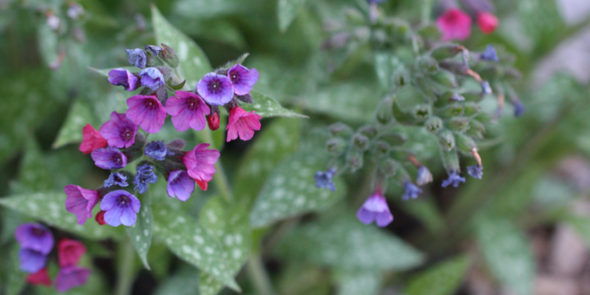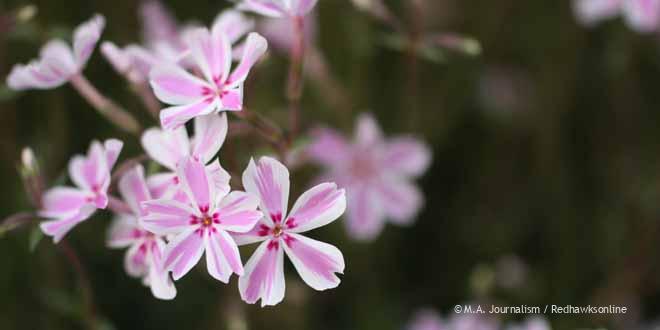Green-thumbed individuals are seeing the effects of “horticulture therapy,” whether they see it as therapy or not
When the sun has climbed above the horizon, a small girl and her grandmother slide through the doors of a farmhouse, maneuvering across the hill to a small path of earth. The child instantly reaches for the hose, moving it back and forth over the rows of carefully planted vegetables. The garden had become her place to grow.
Now no longer a little girl, Dr. Jean Larson is the assistant professor of nature-based therapeutic services at the University of Minnesota.
“As a child, I had a learning disability. The garden has always been a place that I have found not only my solace and restoration, but it has also been a place that has been my teacher. I have learned many things about different subjects through the garden. It is a very experiential way of learning and that’s been very transformative for my own academics,” said Larson, who graduated from Minnehaha in 1979.
Through gardening, Larson was able to combat her learning disability, as spending time in nature gave her concrete experiences to learn from in a soothing and quiet environment.

A white Columbine flower stands in the midst of a home garden. All individuals can experience the stress relieving affects of gardening, whether or not gardening is used as a therapeutic intervention.
This use of gardening for its therapeutic effects can be described as “horticulture therapy.” According to a University of Minnesota Extension website article, horticulture therapy is defined as “the purposeful use of plants and plant-related activities to promote health and wellness for an individual or group.” However, not all interactions in a garden are considered “horticulture therapy.” Different individuals can experience the various effects of spending time in the garden, whether or not they are using it as a therapeutic intervention.
“I would say everyone can benefit with a specific purpose and some kind of a measurable outcome,” said Larson. “If I’m working with someone with Parkinson’s, AIDs, Asperger’s, someone with chemical health issues or someone with persistent mental illness, most everybody can find some therapeutic benefit.”
The benefits found in gardening are vast and can contribute to health in all areas of the body, such as physical, social, emotional and cognitive health.
“For physical benefits, we see everything from range of motion, eye hand coordination, fine motor skills, group strength,” Larson said. “All parts of the body can benefit from being out in the garden. From a social aspect of it, a garden is what we call a social lubricant. It’s a common thing that we have as people, so it provides an opportunity for people to have a conversation.
Science teacher Nancy Cripe also highlights some of the benefits of gardening.
“Being in a gardening sort of mode contributes to health in all those ways: body, soul, mind and spirit,” said Cripe. “Gardening is physical. You’re active. You rediscover muscles when you garden. For people who are struggling to feel like their life has [meaning], they can create something in a garden, and other people can come and share that, or they can give and bless other people as well.”
As horticulture therapy has grown over the years, various scientists have investigated the impact gardening can have on individuals. For example, studies have shown that gardening can renew an individual’s desire to live, provide exercise, lower anxiety levels and stimulate thought. These benefits can come simply from spending a few hours tending a patch of flowers or weeding a vegetable garden.
“In general terms, I think any kind of interaction with nature can be helpful, and the research is supporting that,” Larson said. “Now we are looking at what the specific needs of the individual are and what kind of nature is going to be most helpful to them.”
As the research on the therapeutic effects of nature is getting more specific, scientists have also been exploring the concept of “biophilia,” or the love of nature.
Larson describes, “The biophilia hypothesis is the idea that we all come from nature. It’s in our DNA, and so for us to be in nature, it resonates with who we are. Adam and Eve came from the garden, so it’s a part of who we are as people to be connected to nature.”

Cripe agrees that connecting with plants and things that grow is something that humans have an inborn wish to do.
Even from the beginning, Cripe explained, humans have had a natural desire to work with things that grow, “God said to Adam and Eve, ‘Here is a garden. You are supposed to care-take it and tend it and partner with me in caretaking creation and making things grow through cultivation.’ The tendency is for things to go to wilderness, to wild. If I don’t do anything to my garden, it is going to be overrun with weeds and isn’t going to be very fruitful, so I think from the beginning this idea of cultivating the land and bringing it into fruitfulness…that’s part of God’s design.”
Aside from the inborn need to be in nature and the therapeutic effects that gardening can have on an individual, the act of spending time in the garden is beneficial as it can teach individuals multiple lessons.
Cripe describes a garden’s ability to teach patience and the need for repose.
“I think in our culture we don’t rest very often, and that’s another lesson from the garden,” she said. “You plant, you water, you tend, you harvest, and then you take a break and you replenish during that time. [Gardening] takes time, but you also get to witness the seasons.”
Though the spectrum of uses for horticulture therapy and the benefits that gardening can bring are vast, Cripe notes that it all comes down to a simple interaction with nature.
“Just to realize that this is how life works,” said Cripe. “You have small seeds and you plant them, care for them, water them, protect them and they grow into wonderful fruit bearing plants. And people are the same way. You plant, you feed, you water, you take care and things happen over time. Things don’t just happen like that. I think that’s always a good lesson.”

